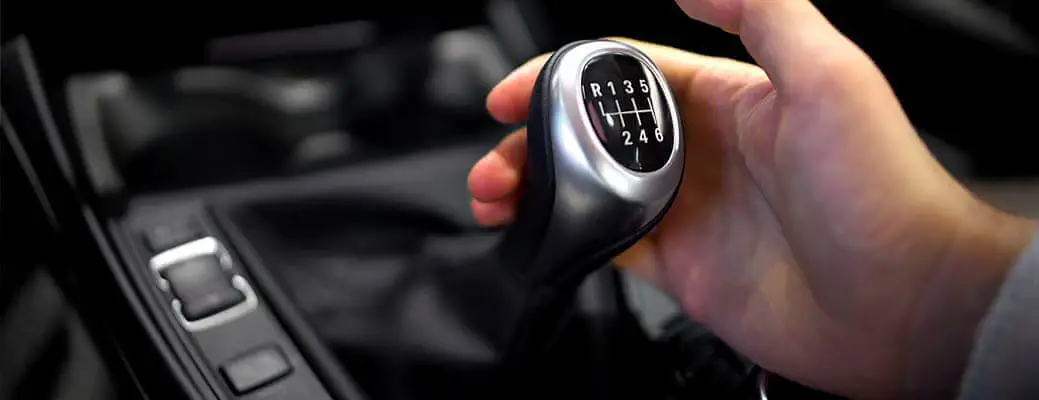Automatic vs. Manual Cars — Costs to Consider


Are you in the market for a new vehicle? One way to cut costs on a vehicle purchase is by opting for a manual over an automatic car. Although manuals can be a little cheaper, they may be a challenge to get your hands on. Here are the costs to consider before you visit your local dealership.
A manual gearbox requires the driver to use the clutch and stick shift to switch between gears to accelerate or change speeds. With an automatic gearbox, the vehicle’s transmission automatically switches between gears as you drive, eliminating the need for the driver to shift.
Manual cars are being manufactured less each year. Due to the few number of drivers who know how to drive a stick shift, manuals can often be cheaper than their automatic counterparts.
Cost is usually one of, if not the biggest, selling points for buyers. When it comes to vehicles, manuals tend to be cheaper upfront due to its simple transmission. For an automatic car to be able to switch gears by itself it requires more intricate machinery and parts.
An automatic transmission requires many complex parts to work together to switch gears by itself. More parts that rely on each other leads to a higher chance of needing repairs. An automatic transmission repair can cost you somewhere in the range of $2,000 to $4,000 for most common brands whereas a manual transmission replacement costs roughly $1,500 to $3,000. The specific repair cost depends on the year and model of your vehicle. Overall, the maintenance costs of a manual are typically lower due to its simple model, but if the clutch goes out, that could be costly.
In order for automatic cars to switch gears seamlessly, a fluid coupling is used throughout the drive to prevent stalling. This constant fluid coupling means manual transmissions typically get better gas mileage. As technology has advanced, newer automatic vehicles are now able to switch gears more similarly to a manual. If you’re shopping for an older vehicle model, a manual’s gas mileage will go a bit farther, but if you’re looking at newer models, automatic and manual vehicle mileage is similar.
The cost of insuring your vehicle is comprised of several factors. Looking strictly at manual vs. automatic insurance coverage, a manual vehicle may be cheaper due to its lower repair costs, but the difference between auto insurance premiums is likely insignificant. This is because insurance companies look at other more significant factors.
Age – Younger drivers are more at risk to be in an accident. Due to their inexperience, they’re more expensive to insure.
Driving record – If a driver has had a few run ins with the law, whether it’s a car accident or a speeding ticket, the monthly insurance premium is likely higher.
Coverage choice – How expensive your auto insurance is depends on the coverage you have. Auto insurance coverage options range from liability coverage and comprehensive to collision and more.
Type of car – Part of calculating your auto insurance is reviewing how expensive your vehicle would be to repair or replace. The nicer the car, the higher the insurance premium.
Where you park – Depending on where your home is located, you could be parking your car in a high-risk area. If you live somewhere where crime and accident rates are higher, your premium could be affected.
Deciding whether it’s better to purchase an automatic or manual vehicle is up to you to decide. Consider factors like finances, vehicle availability, vehicle looks, fuel efficiency and whether you’re able to drive a stick shift.
Whether you’re looking for an automatic or manual, a pre-owned vehicle is likely to be cheaper. They say your vehicle depreciates the moment you drive off the lot, which is true. This makes buying a pre-owned vehicle even more appealing. Purchasing a pre-owned vehicle has a lower depreciation, sometimes comes with a warranty and a lower insurance rate based on the type and year of the car.
If you’re searching for a manual — there’s better news. Manuals are usually listed at a lower price than automatics but are often marked even lower when pre-owned due to the few numbers of drivers who know how to drive a stick.
The reasons to buy a pre-owned vehicle are also reasons to consider when listing your current vehicle for sale. The resale value of a manual will likely be marked lower than if you were listing the same model of car with an automatic transmission.
Whether you’re driving off the lot in a manual or automatic car, we’ve got you covered. Contact your local Farm Bureau agent to learn about the best coverage option for your new ride.